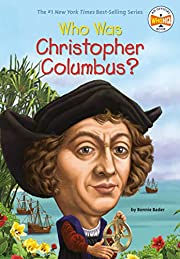Go West, Young Man
- Tamara Shrugged
- Oct 5, 2023
- 3 min read
Updated: Feb 20, 2024
“Columbus and his crew were on land that no one knew about. Christopher Columbus had discovered a new world.” – Who Was Christopher Columbus?
The 1800s was a time of great expansion into the western frontier of the United States, accelerating California’s statehood in 1850. The famous California Gold Rush in 1948 saw hundreds of thousands descend in search of riches. But these “gold diggers” weren’t the only explorers who went west to claim their fortune.
In 1492, an Italian explorer, Christopher Columbus, sought a new trade passage across the Atlantic Ocean, believing he would reach China, Japan, and India, a route that had not been previously attempted. Surly and arrogant, Columbus dreamt of becoming a rich and famous sea captain. Having already worked as a mapmaker for 9 years with his brother, Columbus learned about the world as he collected information from sea captains as they returned to shore. After multiple requests for financial assistance, Columbus finally received backing from Spanish royals, King Ferdinand and Queen Isabella and set sail to find the East Indies.
In Bonnie Bader’s 2013 book, “Who Was Christopher Columbus”, Bader tells how Columbus’s efforts to find a new trade route accidentally ended in discovering unknown lands. In a race to find gold and other riches, royal households competed to find new passageways to the East. Yet, despite missing his desired mark, it was Columbus who first introduced Europe to the New World. Suitable for children ages 7-10, Bader relays the multiple journeys that led Columbus, not to the East Indies, but the discovery of the West Indies instead.
With land routes through deserts and mountains long established, Columbus finally set sail with the Nina, the Pinta, and the Santa Maria. In 70 lengthy and harrowing days, Columbus reached what he thought was Japan. It was, instead, modern-day Bahamas. Although Pythagoras had already determined that the earth was round back in the 6th century BCE, knowledge of another continent between Europe and Asia was yet unknown. After four voyages, using hundreds of men, and dozens of ships, from 1492 through 1498, it was Columbus who went on to discover the Caribbean Islands, Cuba, and Puerto Rico. Returning to Spain, he was not only awarded his desired title, “Admiral of the Ocean Sea”, but also a portion of the riches collected during his trips.
Columbus’s explorations may have been the first attempt to go west by sea, but his efforts followed on the heels of others. Marco Polo and his brother traveled overland from Italy to China in 1260, on a passage that became known as the Silk Road, leading to trade in silk, tea, jewels, and spices. In 1487, Bartholomew Diaz first sailed around the southern tip of Africa, before Vasco da Gama in 1497 made it to India by traveling down the west side of Africa, around the horn, and to the East. But it would be Amerigo Vespucci, another Italian explorer, inspired by Columbus, who would find the Americas, a new Continent, when looking for a passage to the West. Beginning his travels in 1497, Vespucci eventually landed at Rio de Janeiro and Rio de la Plata, finding a new world that in 1507 was named after him.
Since 1971, Columbus Day has been an annual US federal holiday, to commemorate the arrival of Columbus on American shores. Celebrated the second Monday in October, recent political correctness, however, has seen the name of the holiday increasingly changed to Indigenous Peoples Day in one jurisdiction after another. Beginning in progressive Berkeley, California in 1992, Columbus’s achievements have instead been turned into exploits, noting his role in the colonization by Spain, after being given reign over the lands he founded. In addition to his role as conqueror, Columbus was also charged with the depopulation of indigenous people in the lands he discovered as Europeans brought new diseases and violence to the islands, which would decimate future populations.
But troublesome facts don’t change reality. Like explorers before him, Columbus inspired others to seek new worlds. His daring attempts may not have found the passage he expected, but he did change history. For this, he should be acknowledged.







Comments